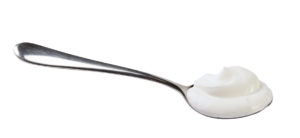Is Vitamin C Good For Your Vagina
Dr A. Bolin explains why some of the things people use to decorate, cleanse, tighten or detox their nether regions aren't always such a good idea.
These days vaginas are getting a lot of attention. We're being told they need to be revitalised, cleansed, detoxed and bejazzled and the internet is awash with a multitude of mixtures, recipes and products claiming to do all those things: vagina sticks, perfumed douches, glittery "passion dust" and even a ground up wasp nest powder are just a few of the things people are putting in that other place where the sun doesn't shine. But, are they really safe to use or could they increase your risk of infection?
A whole new world: it's an ecosystem.
Just like your gut, the vagina has a whole microbiome inside it with good and bad bacteria. A healthy diet and exercise are important to keep the bacterial balance as well as maintain vaginal muscular tone and function.
The pH of the vagina (normally less than 4.5) is acidic and it helps keep the balance between the good and bad bacteria. If the acidity of the vagina drops (it becomes more basic), the number of 'good' lactobacilli bacteria drops, which can enable other bacteria to overgrow and cause an infection. Putting various concoctions into your vagina may tip the pH balance in a direction that makes you more prone to infections.
So let's take a look at some of the more common things people use.
From the kitchen: are your internet recipes evidence-based?
1) Yogurt soaked tampon vs. yogurt for breakfast.
If you have a yeast infection like thrush you may be tempted to treat it with a home remedy involving of a bit of yoghurt and a tampon. While there is a certain logic to restoring the balance of the flora in your vagina this way, it may not be the best idea. There is evidence that eating probiotics like yoghurt can help re-colonising the gut and the vagina with the good bacteria, lactobacilli, but Harvard Health says there is still not enough evidence to recommend using yogurt internally. More studies are needed.
And be doubly cautious if the yoghurt is sugared, flavoured or has other additives. Sugars feeds yeast and could contribute to a yeast infection, which ironically, may have been what you were trying to get rid of with the yoghurt in the first place.
*Recommendation: stick with GP recommended treatments for yeast infections and make sure to rule out other infections. Oral probiotic supplements and probiotic rich yogurt is good for gut and vaginal flora.

2) Apple Cider Vinegar
Many people claim that an apple cider vinegar bath cures a yeast infection. However, there is evidence that chemical burns can be caused by direct application of vinegar to the skin. If a few drops are put into a bathtub full of water that is a different concentration than putting full strength vinegar into your vagina which can lead to irritation and burns.
*Recommendation: leave it for your salad.
3) Garlic
Garlic is known to have a plethora of antibacterial properties, however, it can be an irritant and lead to allergic reactions if applied topically to the skin or put inside the vagina.
*Recommendation: enjoy with your stir-fry instead.
4) Vitamin C
Known as a potent antioxidant, some studies suggest that it might be useful as a treatment for infections such as non-specific vaginitis. However, inserting vitamin C tablets or power into the vagina can lead to burns as it is an acid. Again more studies are needed to determine if it might be of benefit in future.
*Recommendation: take as an oral supplement or eat vitamin C rich foods to boost your immune system.
Should your vagina smell like roses? The real deal about douches, deodorants and wipes.
5) Douching
The official recommendation of the NHS is… don't do it. Many women make homemade recipes to insert into the vagina. Douching may be associated with increased risk of cancer, ectopic pregnancy and infections.
There is a study that recently reported an association between douching and ovarian cancer, however, more research is needed. Substances such as hydrogen peroxide, tea tree oil and other essential oils can lead to inflammation, infection and erosion or the protective mucous walls of the vagina, leaving you ore prone to both yeast and sexually transmitted infections – and as such, they're not recommended for intravaginal use.
*Recommendation: use plain soaps without perfumes to wash the external skin and allow your vagina to clean itself naturally.
6) Deodorants, wipes and perfumes
The vagina has its own natural scent. Trying to add various perfumes and products can change its pH and out you at risk of an infection. The ingredients in those products could also be an irritant to the lining of the vagina. (If you find there is a changed or odd odour, it is best to see your GP to rule out the possibility of infection.)
*Recommendation: don't use deodorants, wipes or perfumes near or in the vagina.

7)Steam sitz bath with herbs and aromatics.
A sitz bath is a warm shallow bath often recommended for relieving haemorrhoids or itching in the nether regions. These days, however – perhaps inspired by Gweneth Paltrow's vaginal or 'yoni' steaming – spa treatments are trending with claims that a steam bath variant of the original sitz can help give your vagina a reviving boost.
Be aware that aromatic steam infiltrating your vagina could be risky as the steam can cause burns if too hot. It could also upset the bacterial balance, leading to an increased risk of infection.
*Recommendation: Avoid. There is no evidence this works for anything. Burn a nice smelling candle instead.
8)Lipstick glue for your lips down there.
A chiropractor developed a lipstick for labia which keeps them sealed shut while you have your period. When you urinate, the oil mixture "gluing" the lips together unseals for blood and urine to be released, and then you reapply again when you're finished.
*Recommendation: This controversial invention has been granted a patent but as yet there is no evidence regarding its safety or effectiveness. It is unclear if it is currently available for sale, but if so, perhaps best left untouched.
Balls, Drugs, Lube and Glitter:
If your thinking of vaginal tightening or balls that can improve you pelvic floor strength, then choose your products carefully.
9) Ben Wa, Geisha, Jade Balls: Tai Chi for your vaginal inner strength?
There are so many options that are available: Ben Wa Balls originate from Chinese Taoists. Geisha Balls and jade balls are variations on the theme to physiologically strengthen the pelvic floor. The balls are inserted vaginally and can be a reminder to practice your Kegel exercises several times a day or left in place for the day.
*Recommendation: Contrary to the 'cleansing, detoxing and clearing' hype surrounding jade balls, they are porous. That means the tiny holes in them can harbor bacteria, just like many other balls sold on the market. If using any balls for Kegels ensure they are made from medical grade material.
Consider using a pelvic floor monitor which is a portable silicone pelvic floor exercise tracker (with results sent to your smartphone) which is FDA approved and available in the UK.

10) Vagina tightening sticks: Majakani or crushed oak galls
Japanese majakani (derived from oak galls) vagina sticks have been around for a while. Whether it be in the form of a vagina stick or crushed oak galls (wasp nests – yes, you read that right, wasps nests) directly inserted into the vagina, neither is recommended.
There are many people who claim that it tightens and cleans the vagina with a combination of herbs and other components. However, the mechanism is basically dehydration of the tissues leading to a bit of temporary shrinkage. Remember that well-hydrated cells and your natural secretions of the vagina help the tissue remain healthy and robust. Dehydrating your vagina can lead to increased friction during sex which can be painful and can in turn make you more at risk of irritation and infection.
*Recommendation: don't dehydrate your vagina.
If you are worried about vaginal laxity there are a number of non-invasive techniques that are clinically proven to work – Femilift, Thermiva and Geneveve to name a few. These usually involve heat from laser, radio frequency or ultrasound that promotes collagen production to strengthen the walls of the vagina. (Tip: great for those ooops moments when you pee when you sneeze!)
11) Marijuana and alcohol in the vagina
People try to get a bigger or quicker buzz out of substances, using marijuana suppositories or alcohol-drenched tampons. The rate which you absorb oral medications or drugs is different to the concentration and rate absorbed by your vagina, so you might not be aware how much you are actually absorbing.
*Recommendation: don't put drugs, alcohol or medications in your vagina (unless the medications are prescribed by your doctor, of course).
12) Sex, sparkle and lube
Rhinestone sparkles are quite popular for bejazzling your vajayjay, so if you are going for the bling make sure you are not allergic to the glue (do a patch test first) and make sure it sticks on the landing strip area and goes nowhere near the vagina and more sensitive labia.
Glittery "Passion Dust" is a sweet edible powder that sparkles and is inserted an hour before sex. Not a good idea to be adding more sugar for bacteria to proliferate in.
Lube: avoid lubes that are flavoured or warming (they tend to contain more glycerin – a sugar alcohol) which can lead to more yeast proliferation. Also, oil based lubricants and Vaseline may be more difficult to break down and can alter the pH in your vagina.
*Recommendation: Not all people are prone to getting yeast infections, but if you are it helps to take some extra precautions and avoid products that may increase your risk. If unsure, always speak to your GP or health care provider first.
*Important: if you have a change in odour, a discharge or any discomfort, see your GP or visit your nearest sexual health clinic to rule out infection. *Never put any object that has been in the anus into the vagina unless it has been properly cleaned.
Is Vitamin C Good For Your Vagina
Source: https://www.harleystreetemporium.com/12-things-you-shouldnt-put-in-your-vagina/







Tidak ada komentar:
Posting Komentar